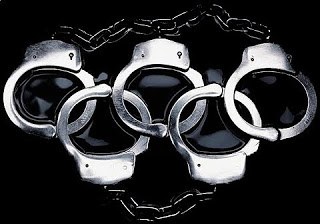The number of people in Britain seized under the controversial “no-evidence-needed” European Arrest Warrant rose by more than 50 per cent last year, figures obtained by The Sunday Telegraph show.
Andrew Gilligan — The Telegraph
The increase will fuel growing political concern about the “unfair” and “disproportionate” nature of the warrants, which British courts have little power to challenge.
It comes as the case of Christopher Tappin, a suburban golf club captain accused of arms smuggling, sparked separate controversy about “unbalanced” extradition arrangements with the US.
David Blunkett, the former home secretary who introduced the European warrants, admitted he had been “insufficiently sensitive” about how they could be “overused”. David Davis, his former Tory shadow, last night called for a “review and reform” of the extradition system.
The number of European Arrest Warrant detentions in Britain has risen 43-fold since 2004, when there were only 24 across the year. Many of those detained are accused of relatively minor crimes such as possessing cannabis or leaving petrol stations without paying.
They can spend long periods in jail – here and abroad – for crimes which might not even have been prosecuted in Britain. They can also be seized for offences which are not crimes in Britain.
Foreign prosecutors do not have to present evidence to the British courts, just demand the person be “surrendered”.
It can be revealed that a middle-aged motorist from Kent spent weeks in a British prison after Polish prosecutors sought his extradition on charges of possessing a forged car insurance certificate.
Patrick Reece-Edwards, 49, was stopped at a Polish border crossing. After questioning, he was allowed to drive off, but months later was seized at his home in Dartford under a European Arrest Warrant.
“He was kept in custody in Britain for weeks,” said his solicitor, Stephen Fidler. “After he was extradited to Poland, matters were resolved by payment of an administrative penalty with no criminal record.”
Another of Mr Fidler’s clients is fighting extradition to Romania after being convicted there of possessing a small quantity of cannabis. He is in his third month in a British prison and is likely to be there at least a further two months before his appeal against the European Arrest Warrant is heard. “Aside from the disproportionality of these cases, the costs to the British authorities are huge,” said Mr Fidler. “Those resources should go towards tackling serious crime in the UK, not minor crime abroad.”
Britain has the same rights to request no-evidence extraditions from other EU countries, but uses the power sparingly. The latest figures show that 98 people were brought to the UK on European Arrest Warrants in 12 months, a fall of 6 per cent on the year before. Supporters of the warrants say that in an increasingly borderless Europe their role has become vital, but human rights campaigners say that the warrants place British citizens at the mercy of some European legal systems whose standards and safeguards are lower. Catherine Heard, the policy officer at Fair Trials International, said: “The over-rigid nature of the system and the absence of basic, EU-wide defence rights have seen people being extradited to serve sentences after grossly unfair trials, or spending months in pretrial detention waiting to prove their innocence.”
Mr Blunkett said: “I was right, as Home Secretary in the post-9/11 era, to agree to the European Arrest Warrant, but I was insufficiently sensitive to how it might be used.”
A Home Office spokesman said: “The Government is committed to reviewing the UK’s extradition arrangements.”
Additional reporting: David Barrett


Be the first to comment on "“No Evidence Needed” — Surge in Britons exported for trial"